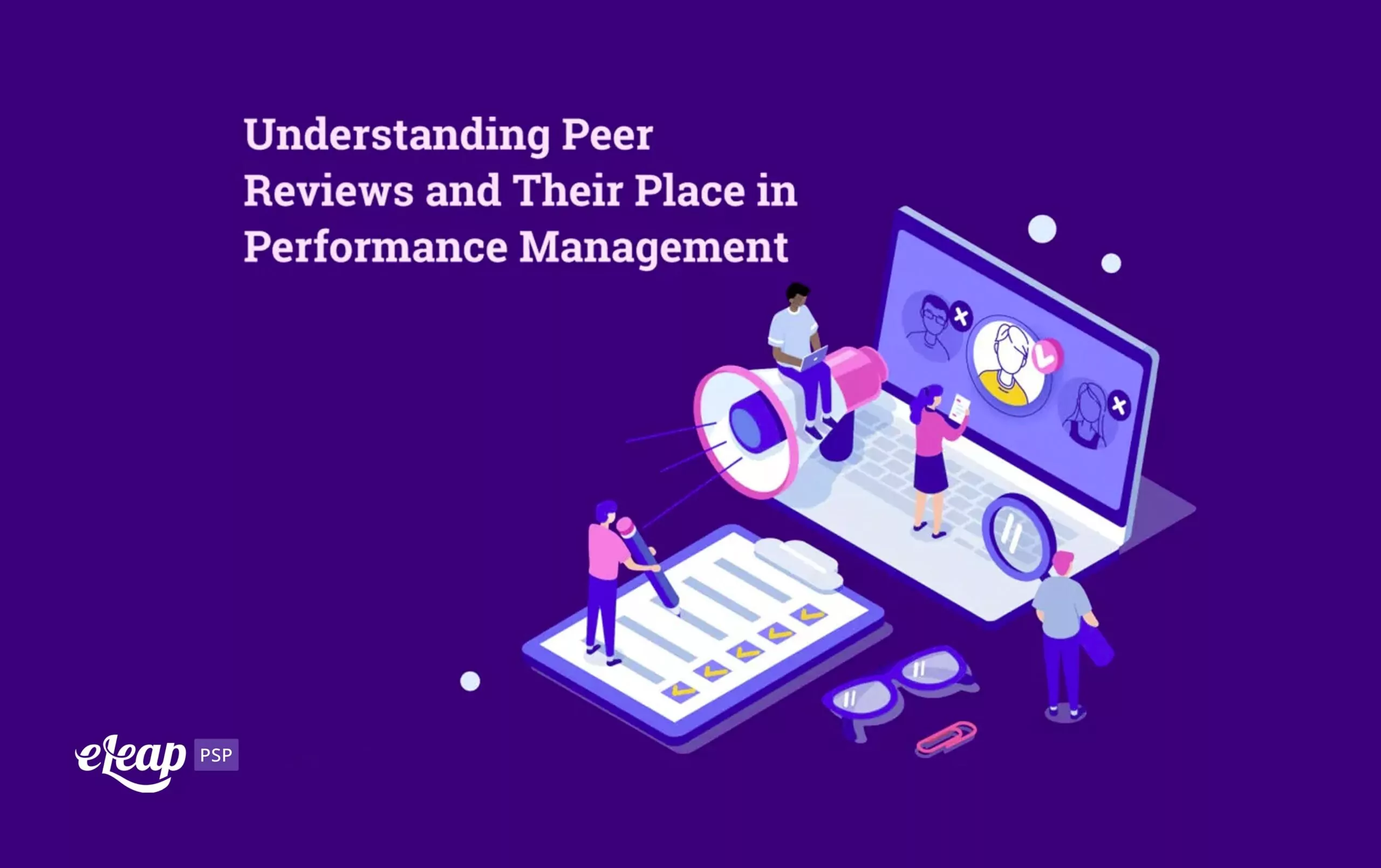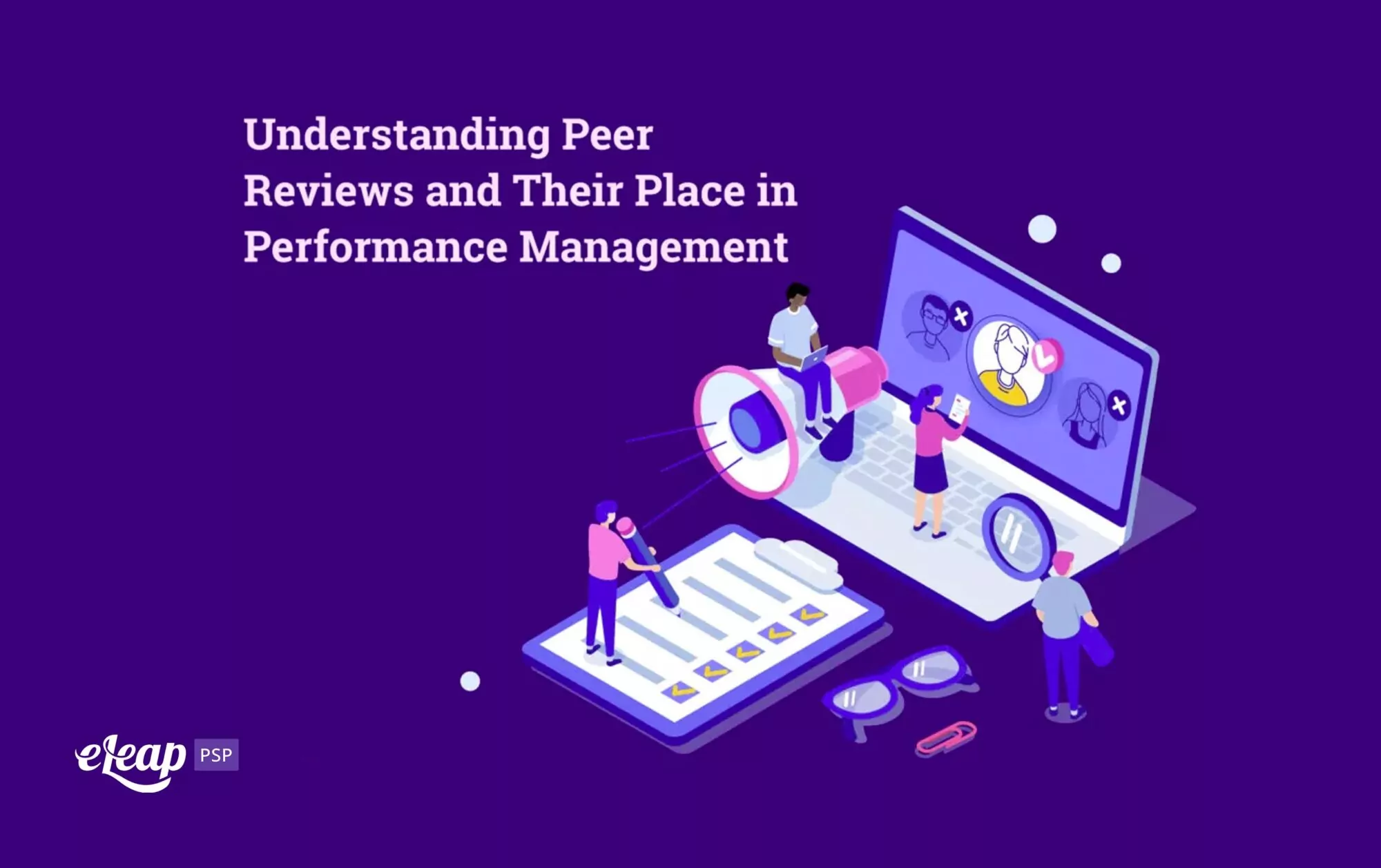Understanding Peer Reviews and Their Place in Performance Management

For decades, performance management reviews involved just two people. You had the manager and the employee. The manager would speak, and the employee would listen. If necessary, they might ask questions, but the information flowed just one way – from the top down. Peer reviews were never part of that process!
Today, things are changing. More and more companies are changing their performance management strategy. Gone are the days when annual reviews were the rule. Today, frequent check-ins and informal conversations are becoming the norm. Those are positive changes that support the ability of employees to deliver outstanding performance while also making them feel valued and supported.
However, another change may not be quite so familiar. Some businesses have started using peer reviews in addition to other performance management tools. What should you know about these options, and what is their role in PM? We’ll explore those and other topics below.

What Are Peer Reviews?
Peer reviews are exactly what they sound like – reviews of an employee and their work from peers. Usually, these are people who work with the employee regularly. Otherwise, there would be little value in their opinions. During the review, other employees offer information, insight, and evaluations of an employee’s attitude, work ethic, overall performance, competencies, and skills.
The Benefits of Peer Reviews
Peer reviews can offer a broad range of benefits when combined with other performance management strategies.
An Accurate Image of Employees
In many cases, those who work alongside an employee know them better than management does. Peer reviews can help you create a more accurate image of an employee, their position within the company, their work ethic, and more. You’ll also get a better picture of areas where that employee needs to improve, as well as areas where that employee excels.
Stronger Teams
When employees understand that they are part of the performance management process, the team dynamic is strengthened. This is particularly true when honest, accurate, and constructive feedback is provided. It helps to cement the idea that the employees are all on the same team and that they all deserve one another’s support and encouragement. It also helps employees realize that the opinions of their teammates are just as important as the opinions of management and teaches them to value everyone equally.
More Legitimate
When feedback comes only from management, there is a sense that it is only semi-legitimate. After all, if the manager isn’t in the frontlines with the employee every day, then just how much do they understand what they’re talking about? With peer reviews, there is a much greater sense of legitimacy.
This is feedback coming from people the employee works side by side with daily, people who are familiar with the challenges and frustrations inherent in those regular duties and responsibilities. It lends weight to their feedback and makes employees more likely to take their suggestions for changes seriously.
Improved Cross-Business Understanding
Peer reviews do more than just support better performance management for individual employees. They can also help build a stronger business overall by improving understanding of what each position does. For instance, suppose you have a team where each member does something slightly different. A peer review would allow all the team members to become more familiar with individual member responsibilities and day-to-day tasks. Now, expand that beyond the single team to the department level, and you will begin to see how peer reviews can be used to create a more cohesive business.
Rules of the Road
While peer reviews can be invaluable tools to help build stronger teams and even improve overall business cohesion, it’s not all rainbows and cotton candy. When not implemented properly, these reviews can encourage negative behavior. For instance, if reviews are anonymous, then employees may use them as a way to act on grudges or for disgruntled workers to sow discord. To prevent those issues, you need to lay down some ground rules and ensure that they’re followed in each instance.
Anonymous
While anonymous reviews can sometimes be harmful, it’s important to realize that team members are unlikely to share accurate negative information if that feedback is not anonymous. They could fear retribution or be perceived as not a team player. You can choose to make your peer reviews anonymous however, there’s wisdom in also making these reviews public (within the system, of course) so you don’t get slanted reviews that people are not willing to stand behind.
Constructive
All reviews need to be constructive, even if they include negative information. Any review submitted that is purely critical or that is destructive should be deleted. Insist on constructive, professional feedback designed to help employees improve and grow rather than tearing them down or ganging up on them.
Focus on Transparency and Encouragement
All reviews should be transparent with the caveat of anonymity. It’s important that problem behaviors be brought to light, but that they are couched in the right terms and that constructive criticism is provided alongside warnings about issues. For instance, feedback from one employee about another might go something like this: Joe is often 15 or 20 minutes late for work. Setting a better personal schedule might help. However, he always stays late when needed”. This is a basic example of highlighting a problem behavior (being late), providing a potential solution (changing the schedule), and highlighting a positive behavior (staying late).
Understand the Pitfalls
While peer reviews can provide a lot of benefits, they can also cause damage when not properly implemented. Again, anonymity is essential. If feedback is tied to the individual leaving it, there is a genuine chance that the recipient is going to take it too personally. That creates tension, damages morale, and may even lead to one or more people resigning from the company.
In Conclusion
Peer reviews can be important tools that help employees improve their performance and thrive. They can improve team morale and even foster better cohesion across the company. As such, they do have a place in your performance management toolbox. However, remember that, like any other tool, these need to be used properly. Without the correct implementation, they can cause serious damage.